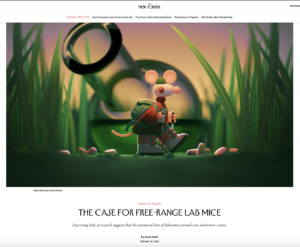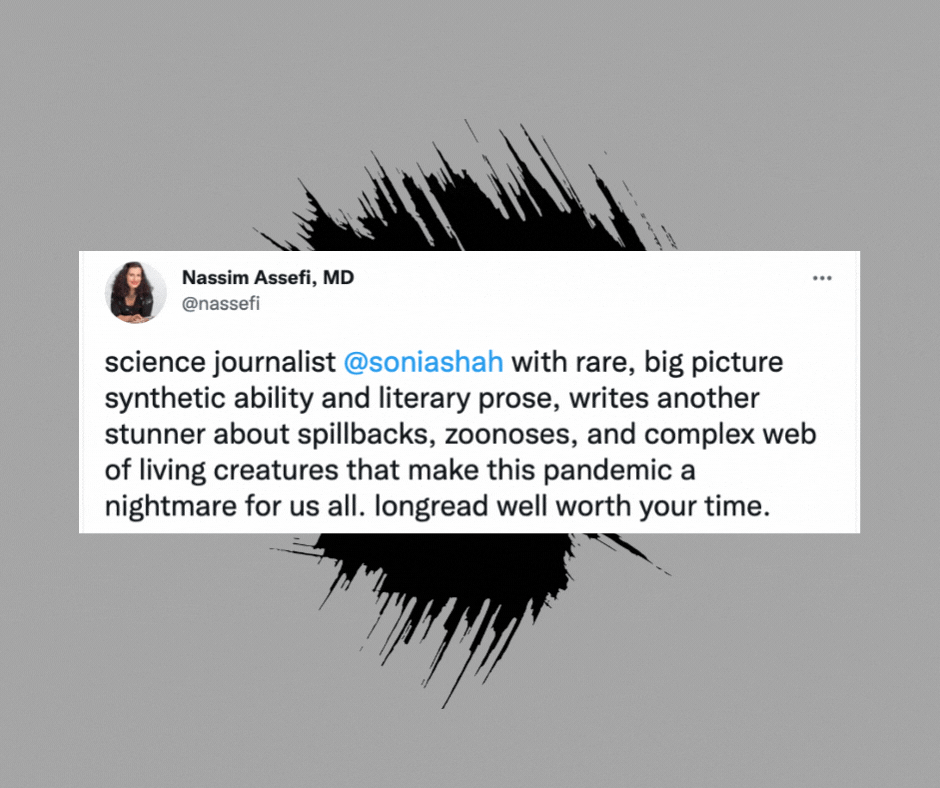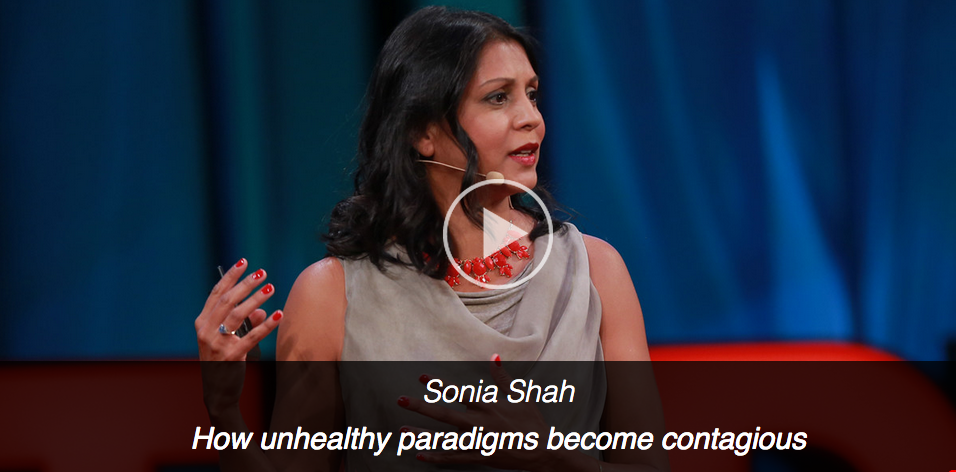Nigerian authorities slapped criminal charges on Pfizer this month, alleging that the company’s infamous 1996 botched antibiotic trial there was “rash and negligent,” and endangered lives.
Some of the subjects in the trial died, others suffered permanent disability, and the prosecutors say it’s Pfizer’s fault for providing a too-low dose of its comparator drug. (Listen to stories on NPR and ABC Australia, which feature a few quotes from me, for details.)
That’s a medical question on which the experts are not unanimous. Kids die from meningitis and are permanently disabled by it, too.
Less debatable is the fact that Pfizer violated international ethics standards and their subjects’ human rights. In a separate class-action suit against the company, the subjects said that they didn’t know they were in an experiment, and the company did not produce signed informed consent forms. The ethics committee “approval” the company produced later turned out to have been backdated.
This is the first time a state has filed criminal charges against a drug company, but I doubt it will be the last. With 80 percent of clinical trials failing to meet recruitment deadlines in the West, major drug companies are today conducting half or more of their trials outside the major markets, often in countries–like Nigeria–with poor human rights records and weak regulatory infrastructures. Pfizer’s Nigeria trial is unusually sensational and high profile, but its bending of the rules may be more the rule than the exception.
Category: The Body Hunters (Page 3 of 4)
A short but pointed interview with me appears in The Internationalist this week, along with a cool watercolor portrait (!). Check it out at The Internationalist.
From this week’s New England Journal of Medicine: a review of The Body Hunters by Johns Hopkins University’s Jeremy Sugarman, MD, MPH:
“An accessible account… important…powerful…derive[d] from a rich set of sources…. It is critical that those engaged in drug development, clinical research and its oversight, research ethics, and policy know about these stories.” —NEJM, December 7, 2006
The Frontline Club in London is a wonderful venue–part bar, part restaurant, and part theater–devoted to independent journalism. I gave a talk about The Body Hunters there last week, and you can see the video here: www.frontlineclub.com
When I was 18 years old or so, I arrived at the frosty, elegant Chicago offices of JAMA: the Journal of the American Medical Association, in hopes of securing an unpaid journalism internship at the esteemed publication. It was a terrifying experience, and I failed to make the cut. Two decades on, vindication in the form of this wonderful review:
“Investigative journalist Sonia Shah has written a lucid, well-researched work on professional and governmental corruption and mismanagement associated with clinical trials conducted by the pharmaceutical industry in the developing world,” Thomas A. Faunce writes in a review of The Body Hunters (JAMA, Nov 1, 2006, 2149-2150). “It deserves the attention of leaders of the medical profession and policy analysts concerned about the human consequences of US health care costs rapidly approaching the point of unsustainability.”
Jude Ike Nwokike is a pharmacologist at the public health research institution, Management Sciences for Health. I was especially pleased to hear his thoughts on The Body Hunters:
“Sonia! Your book is marvelous! I have not finished yet, but already feel that you did a great job. Lots of research must have gone into it; your coverage of Xigris is particularly spectacular.”
It always is nice to hear positive feedback, but it is especially gratifying to hear from experts in the field. Thanks, Jude.
Some early feedback from readers of The Body Hunters, both near and far:
“Thank you so much for sending me your book. It is excellent and will
have a special place on my shelf.” —A formerly high-ranking physician with Pfizer
“I really enjoyed reading your book, The Body Hunters. ( Did you base the
title on Paul de Kruif’s book, The Microbe Hunters ?)” —Dr AniruddhaMalpani, Medical Director, HELP – Health Education Library for People, Mumbai, India
“I just read Body Hunters for a review. As an investigative reporter for more than 20 years, I thought it was a very shrewd piece of work. Bravo. I look forward to reading your next book.” –Charles Rusnell, Staff Writer, The Edmonton Journal
“There’s nothing I love more than a good book, unless it is a free good book…Last week I was sent The Body Hunters by Sonia Shah…I can recommend that folks read the book–it’s a well-documented and clearly presented examination of an industry that many of us depend on.” —fenris.org
Important bans protecting prisoners from medical experimentation are on the verge of dissolution.
As reported by the New York Times today in a front-page story, last month the Institute of Medicine recommended that federal agencies drop the bans. The bans, long justified by the fact that people behind bars can scarcely be viewed as voluntarily consensual, stanched a once-booming industry of experimenting on the incarcerated. Drug companies disassembled the testing labs they’d built next to the prison gates.
If lawmakers take up the IOM’s recommendations as expected, the floodgates may once again be opened.
The IOM takes pains to detail researchers’ transgressions against prisoners in scientific experiments–see this NYT video on the Holmesburg trials, for example–but considered that the hypothetical benefits of prisoner research outweigh the certain and well-documented risks.
These lauded benefits, unlike clearly detailed risks, sound wonderful but are curiously vague.
More details to come…For now, chew on the fact that many of the authors of the IOM recommendations conduct prisoner research (to answer various social science and epidemiological questions) themselves. A conflict of interest, perhaps?
I’m thrilled to report that Amazon.com has started to fill orders for The Body Hunters. A fall speaking tour that includes stops in Boston, New York, Washington DC, Tuskegee AL, Athens GA, Spokane, Seattle and London is in the works. I’m really looking forward to hearing what readers think about the book. Please do contact me with your comments or if you are interested in sponsoring an event, at sonia@soniashah.com
Last week’s front-page Washington Poststory detailing a long-suppressed Nigerian government report on Pfizer’s botched 1996 experiment on Nigerian children shines much needed light on a dark corner of globalization: the drug industry’s human experiments overseas. But those who are now calling for stricter regulations on the practice aren’t goingnearly far enough.
According to the May 7 Washington Post, California Rep. Tom Lantos plans to introduce a bill that would require U.S. investigators to detail their planned trials in developing countries to federal regulators. Right now, researchers must provide regulators with such details only if they plan to enroll American patients into their trials.
It’s an important provision, especially considering that most trials render negative results—a drug doesn’twork, or doesn’t work well enough, for examples. Industry scientists rarely trumpet such failed trials in medical journals, advertisements, and the like, so unless there’s some external record of the trial, those experiments just fade into oblivion. That’s especially troubling in the case of trials conducted in poor countries, because many are for drugs that are rarely accessible to the patients who filled the test clinics in the first place. Worse, if something goes awry in such trials—for example, if the drug is revealed as dangerous, or if subjects are unduly harmed, or uninformed—it is unlikely anyone will ever know about it.
Lantos isn’t the only one calling for more early details on such trials. In September 2004, the International Committee of Medical Journal Editors, fed up with drug companies’ selectively publishing only the good news about their products without the bad, announced that they’d only consider publishing those trials registered at inception on a publicly available database, such as the NIH’s ClinicalTrials.gov. The WHO plans to finalize another such effort on May 20, which they are dubbing “international clinical trials day.”
It would be hugely helpful for scientists, patients, regulators, ethicists and journalists to know in advance of the kinds of trials being conducted around the world. But is it enough? After all, hundreds of clinical trials, run by both drug companies and academic researchers, have been routinely listed on government and industry websites for years. Thousands are published each year in the medical literature. These include many condemned as unethical, such as experiments in which pregnant Ugandan women with HIV and malnourished Zambian children with AIDS, for examples, are given placebos rather than active treatments.
Some researchers have justified such experiments on the basis that impoverished, sickly patients in poor countries can’t afford anything better than a placebo anyway, a double-standard that a 2004 Journal of Medical Ethics paper defended as “not the optimal ethical standard…[but] at least not clearly unethical.” In such cases, trial details were readily available, described as ethically dubious, and sanctioned anyway. Clearly, just knowing about overseas trials is nowhere near sufficient to protecting the human rights and dignity of trial subjects abroad.
What we need even more urgently than greater oversight is greater restraint. Unless drugmakers are producing medicines that will be beneficial and accessible to patients in developing countries, let them stay home for their experimentation. After all, what poor, sick patients in developing countries need more of is medical care, not medical experimentation.
Until the benefits of the last hundred years of medical research are readily available in poor countries, why not require that those who benefit from new drugs—the major drug consumers in the United States, Europe, and Japan—shoulder the burden of experimentation that new drug development requires?













